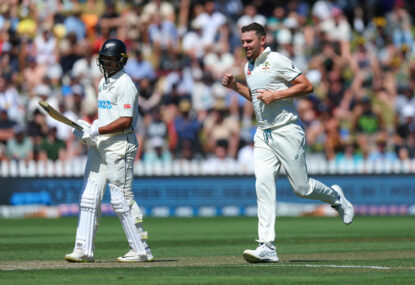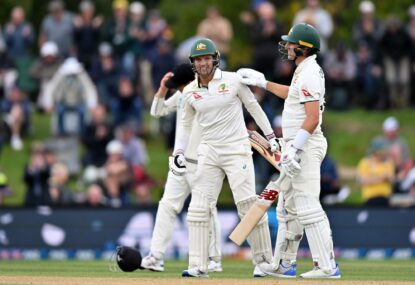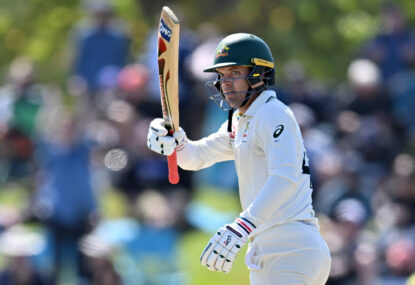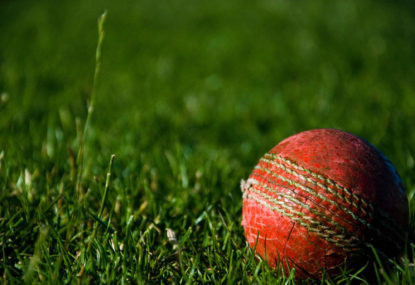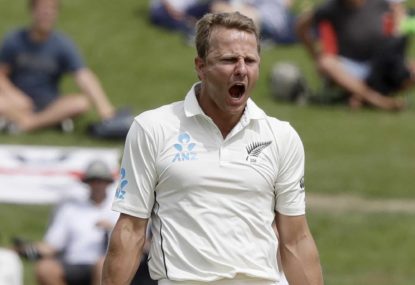New Zealand. Our brothers across the ditch. They’ve punched above their weight in ICC tournaments. They’re the perfect team to finish off this six-part series, and there are a few uncapped players to watch out for in the future.
Test XI
1. Tom Latham
First-class record 7973 runs, 43.09 average, 19 hundreds
Test record 3726 runs, 42.34 average, 11 hundreds
It’s a bit difficult to make a name for yourself when your dad was part of a game-changing New Zealand squad for the 1992 World Cup. But Tom Latham has done enough to step out of his father’s shadow. An excellent player of spin, Latham loves sweeping spinners for hours on end. He didn’t perform to his standards in Australia recently, but he’s still a good player. Latham has done well as captain when Kane Williamson has been rested and is a fine gloveman in one-day cricket. I’d probably go as far as saying he’s been New Zealand’s best opener in Test cricket.
2. Tom Blundell
First-class record 3264 runs, 37.51 average, seven hundreds
Test record 425 runs, 47.22 average, two hundreds
What do you do when you’re a Kiwi keeper-batsman competing against BJ Watling? Become a makeshift opener and score a century at the MCG of course. Blundell has had an excellent start in his Test career so far. New Zealand has had a problem with producing quality openers in Test cricket for a long time, so it’ll be interesting to see how Blundell’s career pans out as a batsman now. He’s deserved the chance to become an opener in the long run, so it’ll be interesting to see how he goes in the future.
3. Kane Williamson (captain)
First-class record 11287 runs, 48.44 average, 31 hundreds
Test record 6476 runs, 50.99 average, 21 hundreds
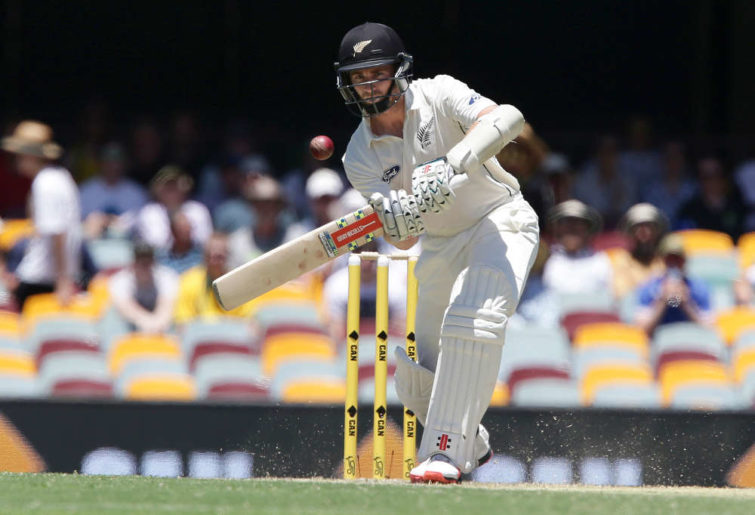
(AP Photo/Tertius Pickard)
I didn’t have the luxury of watching Martin Crowe play, so Williamson is the best New Zealand batsman I’ve ever seen. He’s got hundreds in every country he’s played in apart from South Africa. A selfless player and a great successor to Brendon McCullum in the way he’s led the New Zealand team. Anyone who badmouths Williamson needs to question their morals.
4. Ross Taylor
First-class record 11745 runs, 42.86 average, 27 hundreds
Test record 7238 runs, 46.1 average, 19 hundreds
Taylor has been a phenomenal player for New Zealand. Since his eye surgery in late 2016 he’s become an even better player, which is quite a scary thought considering how good he was with a troublesome left eye. With the ability to take the game away from opponents in an hour, he’s a matchwinner.
5. Henry Nicholls
First-class record 4690 runs, 38.13 average, ten hundreds
Test record 1747 runs, 39.7 average, five hundreds
When Nicholls scored his maiden Test century against a South African attack composed of Morne Morkel, Kagiso Rabada, Vernon Philander and Keshav Maharaj, I knew there was something about him. New Zealand selectors stuck with Nicholls for the long term, and he has paid back with runs. A few poor Tests against Australia and India has hampered his confidence, but it won’t be long until the runs come back for him.
6. BJ Watling (keeper)
First-class record 9617 runs, 39.25 average, 18 hundreds
Test record 3658 runs, 38.5 average, eight hundreds
I’ve said this before and I’ll repeat it: BJ Watling is the best keeper-batsman in the world. He’s so tidy behind the stumps and scores runs for New Zealand in tough situations. His record speaks for itself, to be honest.
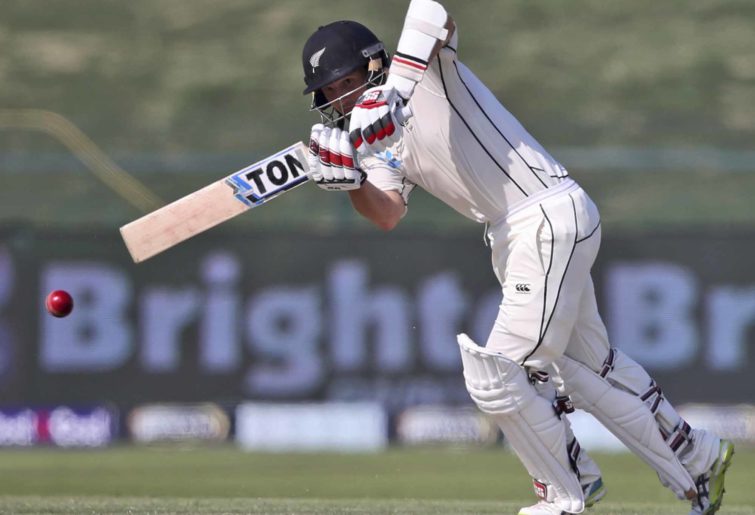
(AP Photo/Kamran Jebreili)
7. Colin De Grandhomme
First-class record 5693 runs, 36.72 average, 12 hundreds, 180 wickets, 29.91 average, 2.69 economy
Test record 1185 runs, 37.03 average, one hundred, 47 wickets, 31.63 average, 2.42 economy
De Grandhomme is a very old-fashioned type all-rounder – he’s not outright consistent but can be a genuine matchwinner on his day. His numbers with the bat are pretty decent, and he offers a lot of control with the ball. Bowling his dibbly dobbly medium pace, De Grandhomme always keeps batsmen in check with his accuracy. His worst economy in all countries he’s bowled in is 2.59 in Australia.
8. Tim Southee
First-class record 428 wickets, 26.94 average, 2.99 economy
Test record 284 wickets, 29 average, 3.01 economy
Despite his poor records in Australia and South Africa, Southee has been a quality bowler for New Zealand. After all, he is New Zealand’s third-highest wicket-taker of all time. He’s no mug with the bat, having scored five fifties in Test cricket.
9. Ajaz Patel
First-class record 242 wickets, 32.11 average, 3.15 economy
Test record 22 wickets, 33.31 average, 2.7 economy
I was stunned to see Patel overlooked for New Zealand’s tour of Australia. He has performed his role flawlessly so far. In New Zealand, Patel holds up an end and creates pressure, allowing the seamers to run riot. But when he’s the main guy on the Subcontinent, he’s picked up 22 wickets in five Tests at an average of 28.5, with two five-wicket hauls. The Central District spinner still has another five to seven years of cricket left in him, so he’s still got many more chances to spin New Zealand to victory.
10. Trent Boult
First-class record 383 wickets, 26.89 average, 2.95 economy
Test record 267 wickets, 27.65 average, 2.97 economy
He’s the fourth-highest wicket-taker for New Zealand. Should I even bother explaining why I have him in the side?
11. Neil Wagner
First-class record 722 wickets, 26.68 average, 3.21 economy
Test record 206 wickets, 26.6 average, 3.06 economy
New Zealand may be branded the nice guys of world cricket, but Neil Wagner is anything but that. Despite leaving South Africa many moons ago, it’s obvious he still has the aggressiveness of a South African quick. Honestly speaking, characters like him are needed in New Zealand. They can’t have 11 nice guys on the field. He bowls with real passion, aggression and heart and it’s yielded him great results. He deserves to bow out of Test cricket with at least 300 scalps.
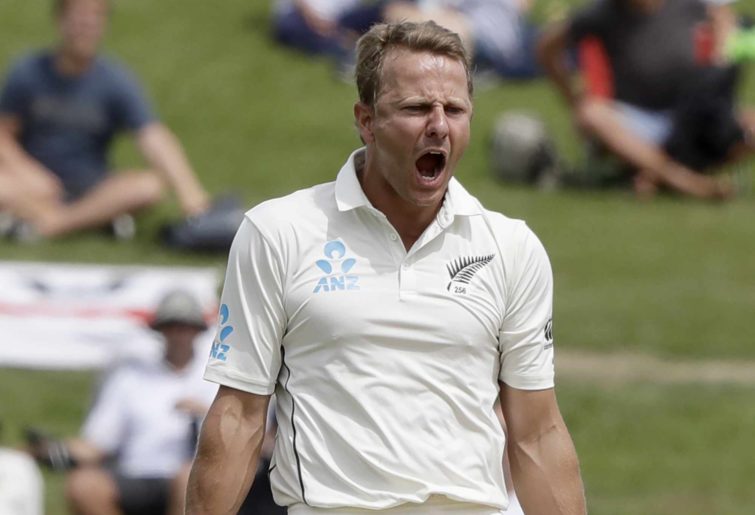
(AP Photo/Mark Baker)
ODI XI
1. Martin Guptill (captain)
List A record 9365 runs, 43.15 average, 27 hundreds
ODI record 6843 runs, 42.5 average, 16 hundreds
One of the finest one-day openers in world cricket. If Guptill is in the right mindset from ball one, my word he’s tough to stop. But when he tries to grind out an innings, it’s frustrating to watch because 95 per cent of the time he’ll get out for 40 off 70 or thereabouts. A world-class opener, Guptill is one of the best fielders in New Zealand, with a rocket of an arm, as seen in the World Cup semi-final when he ran out MS Dhoni.
2. Devon Conway
List A record 3104 runs, 44.98 average, eight hundreds
Conway is so talented I don’t even know where to begin. Firstly, a massive loss for South Africa. He’s too good of a player to have hardly played much domestic cricket in South Africa. A solid opening batsman, Conway has shots all over the ground. Topping the run charts in all domestic competitions in New Zealand last season, the South-African born left-hander will be eligible to play for New Zealand from August. I for one cannot wait to see how he goes.
3. Jack Boyle
List A record 1160 runs, 48.33 average, four hundreds
Boyle has continued his impressive development in the shorter formats, finishing third in the run-scoring charts with 491 runs in the 2019-20 Ford Trophy, New Zealand’s List A competition. The Canterbury batsman has been on the New Zealand selector’s radar, having played for New Zealand A recently and smashing 130 against India A, so a national call-up isn’t far away for the 24-year-old.
4. Will Young
List A record 1979 runs, 37.33 average, five hundreds
I don’t think numbers do justice to how good of a player Will Young is. He’s been very unlucky to remain uncapped at international level, but he keeps on piling the runs. In an unofficial three-match series against Australia before the World Cup Young scored 301 runs with two hundreds, so he’s already got a taste of what it’s like facing international bowlers. Since he wasn’t in the World Cup squad, Young opted for shoulder surgery and made his comeback into domestic cricket a few months ago, scoring a few fifties for Central Districts and New Zealand A.
5. George Worker
List A record 5178 runs, 42.79 average, 13 hundreds
ODI record 272 runs, 34 average, three fifties
Worker has been orchestrating runs in the Ford Trophy for many years. Although he is an opener in domestic cricket, Worker would be more suited in the middle order in this line-up. From what I’ve seen of him in international cricket, he’s an outstanding player of spin and loves batting with intent against them. He bowls pretty decent left-arm tweakers, although he hasn’t bowled much in international cricket.
6. Jimmy Neesham
List A record 3049 runs, 34.64 average, two hundreds, 136 wickets, 28.68 average, 5.83 economy
ODI record 1286 runs, 29.22 average, six fifties, 61 wickets, 32.2 average, 6.13 economy
Neesham has been in and out of the New Zealand side for the majority of his career, but he’s been brilliant since his recall in January 2019. As a batsman his game has improved a lot, being able to play the accumulator and finisher when required. His bowling has improved even more than his batting since his return. In the World Cup he was outstanding with the ball, taking 15 wickets. Alongside his capabilities as an all-rounder, his social media game is the best out of all cricketers.
7. Dan Cleaver (wicketkeeper)
List A record 1223 runs, 31.35 average, two hundreds
Cleaver has remained in the shadows of cousin Kane Williamson for the majority of his career. An aggressive batsman and a solid keeper, Cleaver has the capability to play as a finisher in this side.
8. Mitchell Santner
List A record 1551 runs, 28.2 average, six fifties, 101 wickets, 34.3 average, 4.73 economy
ODI record 924 runs, 27.17 average, two fifties, 71 wickets, 37.47 average, 4.89 economy
It’s not easy to replace Daniel Vettori and perform to his standards, but Mitch Santner has done a fine job for New Zealand in one-day cricket. He’s bowled ten economical overs and takes crucial breakthroughs 95 per cent of the time. His batting is underestimated, playing matchwinning cameos down the order, such as his 17 off 12 against Bangladesh in the World Cup when New Zealand were sliding towards defeat. His calmness when batting is an essential trait in run chases, and I see the Northern Districts all-rounder playing for at least ten years for New Zealand.
9. Kyle Jamieson
List A record 40 wickets, 30.4 average, 5.48 economy
ODI record 3 wickets, 31.66 average, 4.75 economy
I have a lot of respect for the Auckland bowlers. If a bowler can play a whole season at the two Eden Park grounds unscathed, they can become successful white-ball bowlers. It’s an absolute nightmare to bowl there with the backyard cricket-sized boundaries. And Kyle Jamieson has gone through unscathed with the ball for Auckland. A tall bowler, Jamieson gets steep bounce and has troubled Indian batsmen in his short international career so far. He played as an opener in junior cricket and has already played helpful cameos for New Zealand with the bat. Indeed, one to watch for in the future.
10. Matt Henry
List A record 190 wickets, 27.58 average, 5.35 economy
ODI record 92 wickets, 26.48 average, 5.4 economy
An unsung hero in New Zealand cricket. Henry doesn’t bowl quick, but his new-ball bowling has provided many breakthroughs in the powerplay for New Zealand. He took 14 wickets in the World Cup, but his best spell was against India in the semi-final, ripping apart the Indian top order as India slumped to 4-24 and ultimately lost by 18 runs.
11. Lockie Ferguson
List A record 126 wickets, 25.5 average, 5.38 economy
ODI record 69 wickets, 25.78 average, 5.45 economy
The fastest bowler in New Zealand cricket since Shane Bond. To clock close to 150 kilometres per hour consistently takes a lot of skill and practice. Ferguson was another vital cog in the 2019 World Cup, taking 21 wickets at an average of 19.47. His extra pace is a real weapon in the middle and death overs. If he can remain injury-free and keep his workload at a high level, he’ll be able to play all three formats successfully for New Zealand.
T20 XI
1. Colin Munro (captain)
T20 record 6308 runs, 29.06 average, four hundreds
International T20 record 1724 runs, 31.34 average, three hundreds
Munro has been an outstanding T20 cricketer both domestically and for New Zealand. He’s solid square of the wicket, and he loves to hit sixes between midwicket to square leg. Although Munro can be little susceptible to spin at times, he’s developed a reverse-sweep/switch-hit to counter the spinners over the past few years and did that once in the 2016 T20 World Cup, hitting Ravi Ashwin for six. Watch out for him in the T20 World Cup. I believe he’ll finally make a name for himself and can take New Zealand all the way.
2. Glen Phillips
T20 record 2192 runs, 30.87 average, three hundreds
International T20 record 140 runs, 15.56 average, one fifty
Phillips has been outstanding for Auckland and Jamaica Tallawahs in T20 cricket, but he hasn’t been able to translate that into the New Zealand T20 team yet. However, a majority of his international T20 games have been played on slow and low wicket, whereas Phillip’s style of play suits harder, more consistent surfaces. He’s only 23, so time is on his side to develop that side of his T20 game.
3. Nick Kelly
T20 record 732 runs, 27.11 average, five fifties
The St Kilda born batsman had a very good 2019-20 Super Smash, New Zealand’s domestic T20 competition, amassing 398 runs at 39.8 for Otago. Batting at No. 3, he provides stability in the batting order while also scoring his runs at a decent strike rate.
4. Tim Seifert (keeper)
T20 record 1642 runs, 25.26 average, one hundred
International T20 record 457 runs, 22.85 average, three fifties
Seifert is an extremely talented batsman in the shortest format. What separates him from others is his ability to play shots all over the ground – very similar to AB de Villiers. Consistency has been a problem for both New Zealand and Northern Districts at times, but when he’s in full flow, bowlers have struggled to keep him quiet.
5. Darryl Mitchell
T20 record 1691 runs, 30.19 average, five fifties
International T20 record 103 runs, 12.87 average, no fifties
Mitchell has the tough job of closing out the innings with the bat for New Zealand most times, thus the low average. A handy middle-order bat, Mitchell is a technically sound batsman who loves hitting sixes down the ground. I believe Mitchell will get better if given more chances, especially with his ability to bowl some handy medium pacers, which could come in handy on Australian pitches for the T20 World Cup. Fun fact: he used to play for Western Australia under-19s alongside Marcus Harris and Sam Whiteman before moving back to New Zealand.
6. Anton Devcich
T20 record 3101 runs, 24.22 average, 20 fifties, 74 wickets, 26.62 average, 7.48 economy
International T20 record 111 runs, 27.75 average, one fifty, two wickets, 40 average, 6.66 economy
Devcich has been quite unfortunate not to have played more international T20 games for New Zealand. A T20 freelancer, the 34-year-old all-rounder is a powerful batsman in the middle order, scoring quick runs in the slog overs. Just like Munro, Devich’s six-hitting range is mostly on the leg-side. He bowls left-arm orthodox and keeps batsmen quiet most of the time.
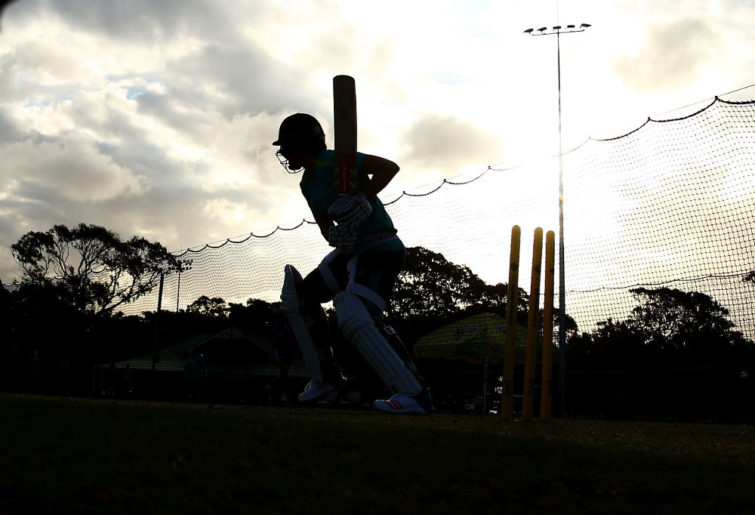
(Mark Kolbe/Getty Images)
7. Michael Rippon
T20 record 500 runs, 26.31 average, one fifty, 55 wickets, 27.12 average, 7.44 economy
International T20 record 216 runs, 30.85 average, zero fifties, 15 wickets, 20.66 average, 6.11 economy
Rippon has had an interesting career so far. Born in South Africa, he was able to play in the English county circuit due to holding a Dutch passport. Rippon made his debut for the Netherlands in 2013 and was part of the 2014 T20 World Cup squad but didn’t play a game. He joined Otago in January 2017, announced his intentions soon after and is now eligible to play for New Zealand. The all-rounder bowls left-arm wrist spin, with his variations bamboozling batsmen, and provides some solid late-order hitting with the bat. He is a genuine chance to make the T20 World Cup squad, but he deserves a few games under his belt for the Blackcaps before the T20 World Cup before the Kiwi selectors make up their mind.
9. Ish Sodhi
T20 record 170 wickets, 24.3 average, 7.83 economy
International T20 record 53 wickets, 24.09 average, 8.05 economy
Sodhi is someone I highly rate among New Zealand spinners. His traditional leg spinners and googly turn a lot, and he’s got a lot of control over his variations. A genuine wicket-taker, Sodhi has performed to high standards with the ball across various T20 leagues and for New Zealand. Wrist spinners are a must in white-ball cricket, and Sodhi is already on the plane to Australia for me.
10. Mitch McClenaghan
T20 record 229 wickets, 25.41 average, 8.5 economy
International T20 record 30 wickets, 26.3 average, 7.78 economy
McClenaghan has played the majority of his T20 career at Eden Park and Wankhede stadium, where bowlers are as useful as spectators. He does go for runs, but he’s a wicket-taker in the shortest format. McClenaghan was an integral part of New Zealand’s success in the 2016 T20 World Cup, with his ability to take pace off the ball. He can be used as a pinch hitter as well, which Ricky Ponting did a few times in the IPL when coaching the Mumbai Indians.
11. Hamish Bennett
T20 record 52 wickets, 28.42 average, 7.8 economy
International T20 record 6 wickets, 30.16 average, 9.52 economy
Bennett was the top wicket-taker in the Super Smash, with 17 wickets in 11 games, and was rewarded with a debut T20 cap against India a few months ago. After getting some stick in his first three games, Bennett has bowled much better in his last two international T20 matches. Bowling with the new ball and the death overs, Bennett gets the ball to shape away very late against right-handers and has developed a butterfly ball, similar to one of AJ Tye’s slower balls. While I don’t think he’ll be in the playing XI for the T20 World Cup, he’ll be in the squad for sure.
11. Adam Milne
T20 record 116 wickets, 22.32 average, 7.65 economy
International T20 record 25 wickets, 21.64 average, 7.42 economy
What I like about Milne is that he just runs in and bowls fast without the fear of getting hit. He hits the deck hard, clocking 145-plus, and loves to shatter the stumps. Unfortunately he hasn’t played any cricket since August 2019 due to injury, but I believe he’ll be in the T20 World Cup squad as long as the New Zealand coaching staff can minimise and control his workload before the World Cup.

































































































